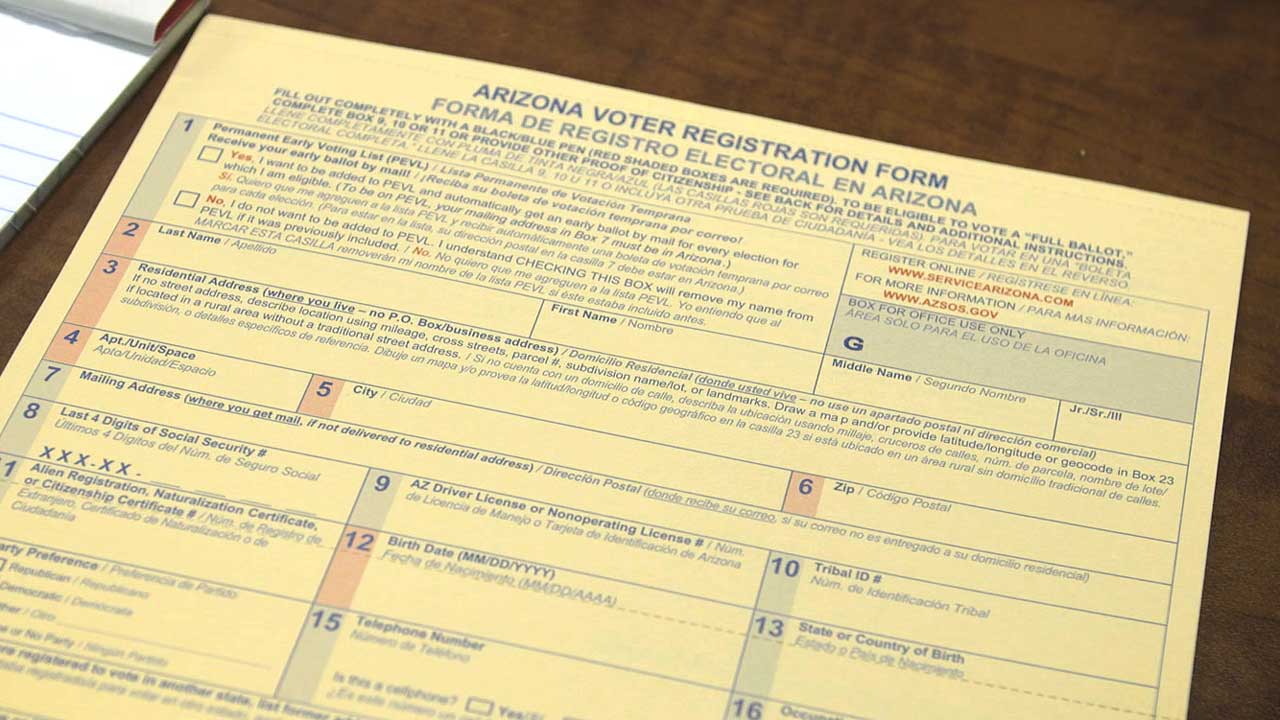
Mi Familia Vota v. Fontes (Amicus)
What's at Stake
Does Congress have authority (as it has long done) to regulate all federal elections, including presidential elections—such as through key federal voting rights laws like the NVRA, UOCAVA, and the MOVE Act?
Stay informed about our latest work in the courts.
By completing this form, I agree to receive occasional emails per the terms of the ACLU's privacy statement.
Summary
Plaintiffs in this case challenged state laws that would make it harder for Arizonans to register to vote, including through rules involving Arizona’s treatment of state and federal voter registration forms.
For example, Arizona requires applicants to submit documentary proof of citizenship (DPOC) to register to vote. Because the Supreme Court has held that the National Voter Registration Act (NVRA) protects applicants who use the federal voter registration form, Arizonans who use the federal form without providing DPOC would still at least be registered as “federal only” voters who can vote in federal but not state elections (as opposed to “full-ballot” voters who can vote in all contests). In 2018, the Secretary of State of Arizona entered into a consent decree providing that even where applicants submitted the Arizona state voter registration form without DPOC, they could still be registered as full-ballot voters if their county election officials verified their citizenship through government records; or if their citizenship could not be verified through records, be registered as “federal only” voters.
Contrary to this decree, Arizona then passed laws requiring county election officials to reject all state form registrations without DPOC (regardless of whether citizenship could be otherwise confirmed). The challenged laws also redefined “federal only” voters to be prohibited from voting in presidential elections (based on a constitutional theory that federal protections offered by the NVRA can only apply to congressional but not presidential elections).
The district court ruled that the NVRA applies to presidential elections and thus prohibits Arizona from restricting “federal only” voters to voting in only congressional elections, and found that the consent decree precluded Arizona from enforcing contrary state law provisions regarding state form applicants without DPOC. The case was appealed to the Ninth Circuit.
On behalf of the League of Women Voters (LWV), the League of Women Voters of Arizona (LWV Arizona), the Secure Families Initiative, and the Modern Military Association of America (collectively, amici), the ACLU and co-counsel filed an amicus brief before the Ninth Circuit to support the district court’ findings regarding these issues.
Our amicus brief discusses long-standing precedent and history supporting Congress’s constitutional authority to regulate presidential elections, including through the Elections Clause, the Necessary and Proper Clause, and the Fourteenth and Fifteenth Amendments to the U.S. Constitution. The brief also discusses some deeply concerning implications of limiting the protections of key federal voting rights legislation like the NVRA and the Uniformed and Overseas Citizens Absentee Voting Act (UOCAVA) and the Military and Overseas Voter Empowerment (MOVE) Act, including the confusion and disenfranchisement that would result from finding that Congress cannot regulate presidential elections through laws like these. Our brief also discusses the consent decree and the harms that would result from undoing its protections, both for Arizonans who use the state voter registration form and for voter registration organizations like LWV Arizona that currently heavily utilize the much more user-friendly Arizona state form, in reliance on the terms of the consent decree. Accordingly, we urge the court to affirm the district court rulings on these matters.
Legal Documents
Press Releases
Voting Rights Groups File Amicus Brief to Protect Arizona’s Eligible Voters from Documentary Proof of Citizenship Law